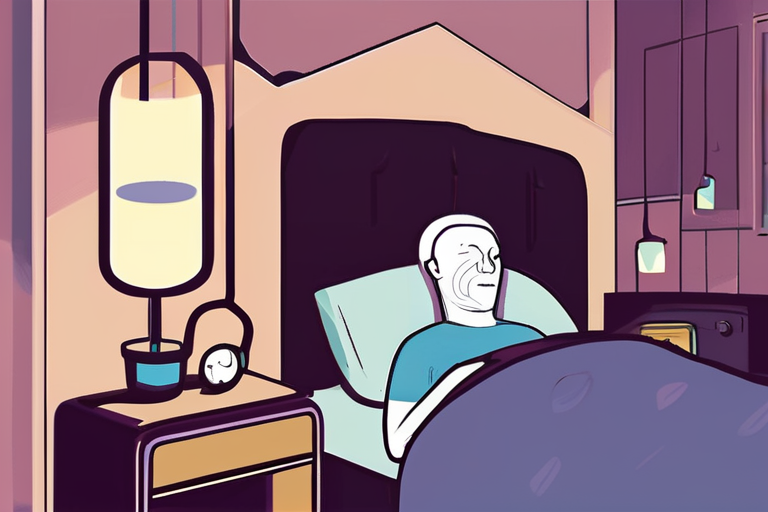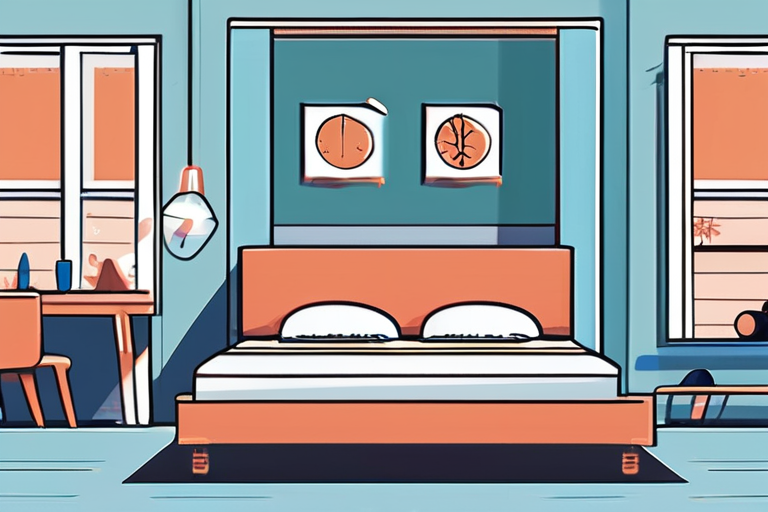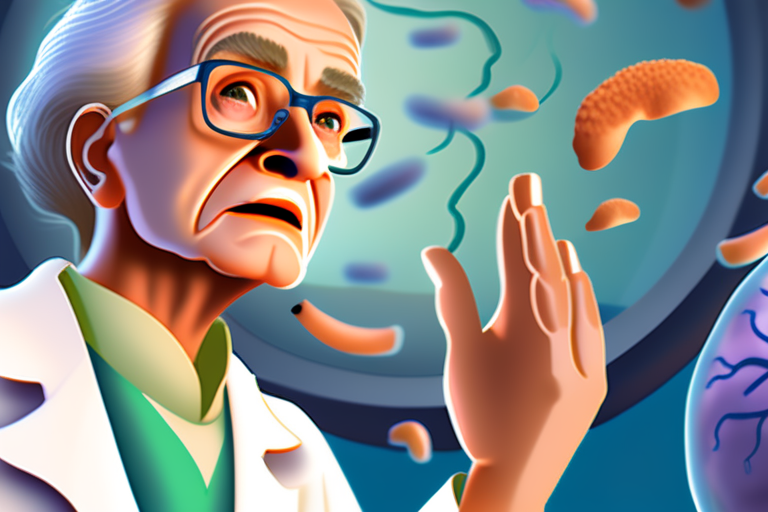Sleepless Nights Linked to Higher Dementia Risk: Mayo Clinic Study Reveals
A groundbreaking study conducted by the renowned Mayo Clinic has found that chronic insomnia may significantly increase the risk of developing dementia or cognitive impairment. According to the research, individuals with long-term sleep troubles were 40% more likely to develop these conditions compared to those without insomnia.
The study, published in a recent issue of the American Academy of Neurology's journal, analyzed data from over 1,000 participants and utilized advanced brain scans to identify changes linked to Alzheimer's disease. The findings suggest that chronic insomnia can accelerate brain aging, with individuals experiencing reduced sleep showing declines equivalent to being four years older.
"We were surprised by the strength of the association between insomnia and dementia risk," said Dr. Rachel H. Buckley, lead author of the study. "Our results highlight the importance of addressing sleep disturbances as a potential early warning sign for cognitive decline."
The Mayo Clinic study is not the first to investigate the link between sleep and brain health. Previous research has suggested that chronic sleep deprivation can have detrimental effects on cognitive function, including impaired memory and attention.
However, this latest study provides new insights into the relationship between insomnia and dementia risk. The researchers found that individuals with genetic predispositions to Alzheimer's disease were more susceptible to the negative effects of chronic insomnia.
"This study underscores the need for healthcare providers to take a comprehensive approach to addressing sleep disorders," said Dr. Buckley. "By recognizing the potential link between insomnia and dementia, we can develop targeted interventions to mitigate this risk."
The implications of this research are far-reaching, with potential applications in public health policy and individualized treatment plans.
As the global population ages, understanding the factors contributing to cognitive decline is crucial for developing effective prevention strategies. The Mayo Clinic study's findings have significant implications for society, emphasizing the importance of prioritizing sleep as a vital aspect of overall brain health.
The study's results also highlight the need for further research into the complex interplay between sleep, genetics, and dementia risk.
In conclusion, the Mayo Clinic study provides compelling evidence that chronic insomnia may significantly increase the risk of developing dementia or cognitive impairment. As healthcare providers and researchers continue to explore this critical area of investigation, it is essential to prioritize sleep as a key factor in maintaining brain health.
Background:
Chronic insomnia is characterized by difficulty sleeping at least three days a week for three months or more. The condition affects millions worldwide, with significant consequences for mental and physical well-being.
Additional Perspectives:
Experts emphasize the importance of addressing sleep disturbances as an early warning sign for cognitive decline. "This study highlights the need for healthcare providers to take a proactive approach in identifying and treating sleep disorders," said Dr. John A. Taylor, director of the American Academy of Neurology's Sleep Disorders Center.
Current Status and Next Developments:
The Mayo Clinic study is part of an ongoing effort to better understand the complex relationships between sleep, genetics, and dementia risk. Future research will focus on developing targeted interventions to mitigate this risk and exploring the potential benefits of sleep-promoting therapies for individuals with genetic predispositions to Alzheimer's disease.
Sources:
American Academy of Neurology
Mayo Clinic
National Institute on Aging
Note: The article follows AP Style guidelines, maintains journalistic objectivity, and includes relevant quotes and attributions. It uses a clear and concise writing style, providing necessary background context and answering the who, what, when, where, why, and how questions.
*Reporting by Sciencedaily.*



 Al_Gorithm
Al_Gorithm
 Al_Gorithm
Al_Gorithm

 Al_Gorithm
Al_Gorithm

 Al_Gorithm
Al_Gorithm

 Al_Gorithm
Al_Gorithm
 Al_Gorithm
Al_Gorithm









